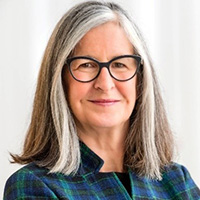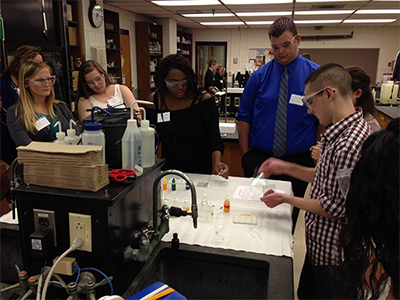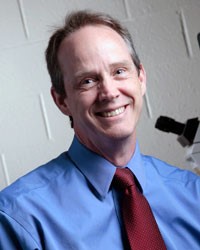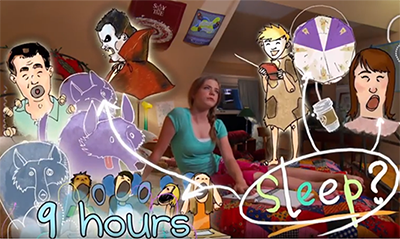Six NIGMS grantees are among this year’s winners of the Presidential Award for Excellence in Science, Mathematics and Engineering Mentoring (PAESMEM). The award was established by the White House in 1995. This year, it went to 27 individuals and 14 organizations.
PAESMEM recipients were honored during a 3-day event in Washington, D.C. The event featured a gala presentation ceremony and a White House tour. In addition, each winner received a $10,000 grant from the National Science Foundation, which manages PAESMEM on behalf of the White House Office of Science and Technology Policy.
The event also included the first-ever White House State-Federal STEM Education Summit. During the summit, awardees joined leaders in education and workforce development from across the nation, including U.S. territories and several Native American tribes, to discuss trends and future priorities in STEM education. The discussions will inform the development of the next Federal STEM Education 5-Year Strategic Plan, which must be updated every 5 years according to the America COMPETES Reauthorization Act of 2010.
The six NIGMS-supported PAESMEM winners are listed below. In this blog, we will highlight the work of each one, starting with Ann L. Chester and John A. Pollock.
- Ann L. Chester, Ph.D., West Virginia University
- John K. Haynes, Ph.D., Morehouse College
- John A. Pollock, Ph.D., Duquesne University
- Elba Elisa Serrano, Ph.D., New Mexico State University
- Virginia Shepherd, Ph.D., Vanderbilt University
- Maria da Graça H. Vicente, Ph.D., Louisiana State University
Ann L. Chester, Ph.D., West Virginia University

Much of Ann Chester’s career has been devoted to encouraging students of underrepresented racial or economic status to pursue careers in the health sciences. By integrating local community issues into health and science education, she engages young people in research about real-world issues that impact them and their loved ones.
An assistant vice president for education partnerships at the West Virginia University (WVU) Health Sciences Center, Chester is also founder and director of the Health Sciences & Technology Academy (HSTA), a West Virginia mentoring program. HSTA began as a pilot program in 1994 and has been funded in part by the Science Education Partnership Award (SEPA) program since 1997. It continues to help high school students overcome social and financial challenges so they can enter college and earn STEM-based undergraduate and graduate degrees.

Chester has organized a supportive HSTA network of teachers, community members, and higher-education faculty to mentor generations of West Virginian students. Since 1998, 99 percent of HSTA graduates have attended college, and 84 percent of college graduates continue to live and work in West Virginia, further enriching local communities and economies.
HSTA has inspired similar programs across the country, including at Clemson University, the University of Tennessee, the University of Alaska, and the University of Pittsburgh. It has been so successful that TEDx invited Chester to give a presentation about the program in April 2018.
Additionally, Chester leads the WVU Health Careers Opportunity Program (HCOP), which supports the work of HSTA at a college level. The summer program, started in 1985 for students living in communities that are medically underserved, guides students toward careers in health care. Out of the 500 or so HCOP students, 68 percent earned degrees in the health professions.
Chester’s Presidential award is one of several she has received for her work. Other honors include the West Virginia University School of Medicine’s Dean’s Award for Excellence in Service to the Community (2011), Ethel and Gerry Heebink Award for Distinguished Service to WVU (2015), WVU Mary Catherine Buswell Award for Outstanding Service for Women (2016), and Women in Science and Health Advanced Career Award (2017).
John A. Pollock, Ph.D., Duquesne University

John Pollock is passionate about mentoring. Along with teaching undergraduate and graduate courses in neuroscience and biology, and conducting scientific research, he’s mentored more than 150 students. About a quarter of these students have been from racial or ethnic groups underrepresented in STEM fields. Nearly all his mentees have successfully pursued graduate degrees.
Bringing Pollock’s efforts full circle, many of his former students have gone on to help underserved communities. They are now leaders in fields that include law, science, medicine, biomedical research, and teaching.
In addition to nudging students upward in their pursuit of education and careers, Pollock reaches down to impact the lives of the youngest members of the future STEM workforce. He helps organize science summer camps for Pittsburgh children from underserved areas; creates museum, planetarium, and travelling exhibits; and volunteers weekly as a reading tutor for 4- and 5-year-olds.
Furthermore, Pollock develops media resources to educate youth in STEM education and health literacy. He is founding director of A Partnership in Neuroscience Education, which has received funding from the Science Education Partnership Award (SEPA) program since 2000. The program specializes in creating educational products that make science engaging and fun for teachers, students, and learners of all ages. These resources include videos, TV shows, video games, and award-winning apps for young people and the general public. One such app is the Darwin Synthetic Interview.
Another product that Pollock created and produced is the TV show Scientastic! The show explores science, health, and social issues through the perspective of young people, blending live-action and animation. The plot mixes fictional story arcs with interviews from real doctors and scientists in and around Pittsburgh. One SEPA-funded episode, Scientastic! Are You Sleeping? is a two-time winner of the Emmy Award and comes with an accompanying viewing guide and lesson plan.

In addition to the Presidential award, Pollock is the recipient of the Darwin Evolution/Revolution Award, NIH (2008); Carnegie Science Award, Special Achievement in Education (2011); Duquesne University Presidential Award for Excellence in Teaching (2013); and the Bayer School of Natural and Environmental Sciences Award for Excellence in Scholarship (2017). The Apple Corporation also named Pollock an Apple Distinguished Educator in 2017.


It’s really a nice and helpful piece of info. I’m happy that you shared this useful information with us. Please keep us informed like this. Thanks for sharing.
Gracias por la informacion!! Este tipo de blogs me parecen muy importantes, esto lo estudio en la universidad. gracias por la informacion.
[Translation: Thanks for the information!! This type of blog seems very important to me, this is what I study at the university. thanks for the information.]